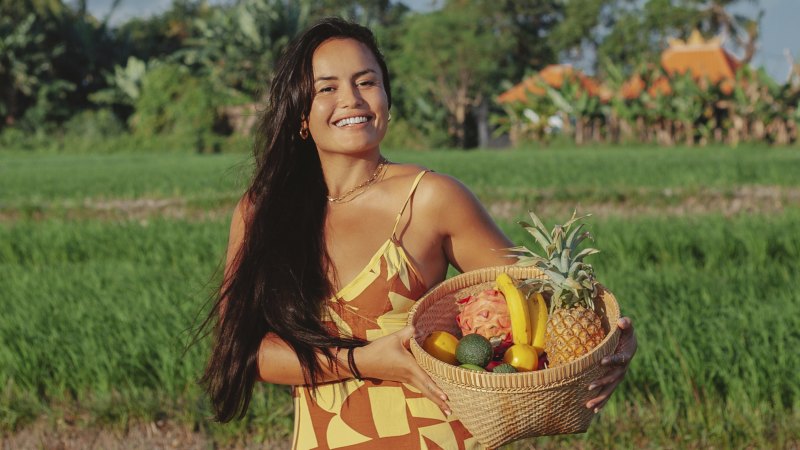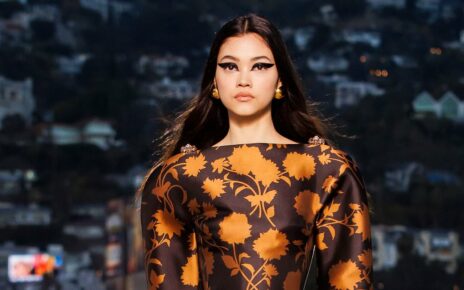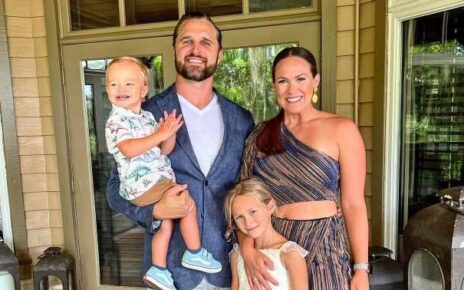Save articles for later
Add articles to your saved list and come back to them any time.
“Tri Hita Karana”, the Balinese philosophy for wellbeing that is about balancing harmony between nature, people and the spiritual world, is a mantra Australian-Balinese restaurateur Lauren Camilleri lives by.
Since making the Island of the Gods her home at the age of 18, moving from the NSW coastal town of Gerringong to open a sandwich and juice cafe in Legian, she has become a keen student of the language, culture and cuisine of her mother’s homeland.
Australian-Balinese restaurateur Lauren Camilleri is keen to show the “true essence of Bali” in her new series Paradise Kitchen Bali.
Now 32, and the co-owner of popular plant-based restaurant chain Kynd, with venues in Seminyak and Canggu, Camilleri makes her first television appearance fronting SBS Food’s Paradise Kitchen Bali, a sensorially enlightening window into the Balinese connection between food and community.
“Not many [foreigners] get to experience the true essence of Bali,” says Camilleri. “With so much development and change here, something that remains strong is the Balinese and their traditions. They have access to all the Western cooking appliances, yet they still choose to use traditional techniques, like cooking over a wood fire to retain that smoky flavour, or using the mortar and pestle versus a blender to create bumbu [curry paste].”
In the series, Camilleri visits farmers, chefs, culinary schools and even priests, to learn about ritualistic food offerings, as well as demonstrating how to perfect bumbu (“the foundation for a lot of Balinese dishes”) and making delights such as jackfruit rendang with lemongrass sambal and some Western-inspired dishes such as cashew carbonara.
“Everything the Balinese do has an intention and meaning, and cooking in Bali is often a communal or collaborative effort,” says Camilleri.
“I love creating food … You don’t have to be a chef or come from university … Passion is much more powerful.”
Growing up between two worlds, Camilleri only knew of Bali as the favoured Australian holiday destination. During a family visit there when she was 16, everything changed. “Something sparked this curiosity inside me,” she says. “I felt like I needed to be here. I left school in year 11, and decided to make the move. It was scary. I was coming to a place that I knew so much about, but also didn’t know. This is where I felt my soul belonged.”
Locals still refer to her as a “bule” (Westerner), but learning the local dialect has helped her connect with her 130 staff. “Most bule speak Indonesian, and I can speak it fluently, but my staff are always teaching me new Balinese words.”
Exclusively plant-based eating is new to most Balinese, whose Hindu religion permits meat. The clientele at Kynd is largely tourists and expats, first lured by a timely strategy.
“My business partner, Corryn Queenan, has a marketing background,” says Camilleri. “She said, ‘We need to make sure that everything not only tastes good, but looks good as well’. This is when Instagram was becoming a thing. So, when we opened the doors, we had this pink wall that everybody wanted to take photos in front of, and people could put custom lettering in their smoothie bowl.
“People went crazy over it. Within a year, we built next door and went from a 30-seat cafe to 100 seats.”
When approached by producers to make the series, Camilleri experienced “impostor syndrome”.
“It took a while to convince me. Self-doubt kicked in,” she says. “But I’ve learnt to accept that just because I don’t come from that traditional chef background, I love creating food. I’m owning what I am and not what I’m not. That’s something that is cool in the series. You don’t have to be a chef or come from university or have different degrees. Passion is much more powerful and that’s what’s fuelled me on my journey. I loved being in front of the camera.”
Although the Balinese recipes in the series seem to involve a pantryful of ingredients, meticulous methods and numerous steps, Camilleri insists everyone can try them at home. “There are a lot more intricate traditional recipes here in Bali,” she says. “However, what we do in this show is generally quite simple. Most ingredients are available in Australia, from Asian groceries.”
But first, master that bumbu paste.
Paradise Kitchen Bali begins on Thursday, September 21, at 9pm on SBS Food.
Find out the next TV, streaming series and movies to add to your must-sees. Get The Watchlist delivered every Thursday.
Most Viewed in Culture
From our partners
Source: Read Full Article



